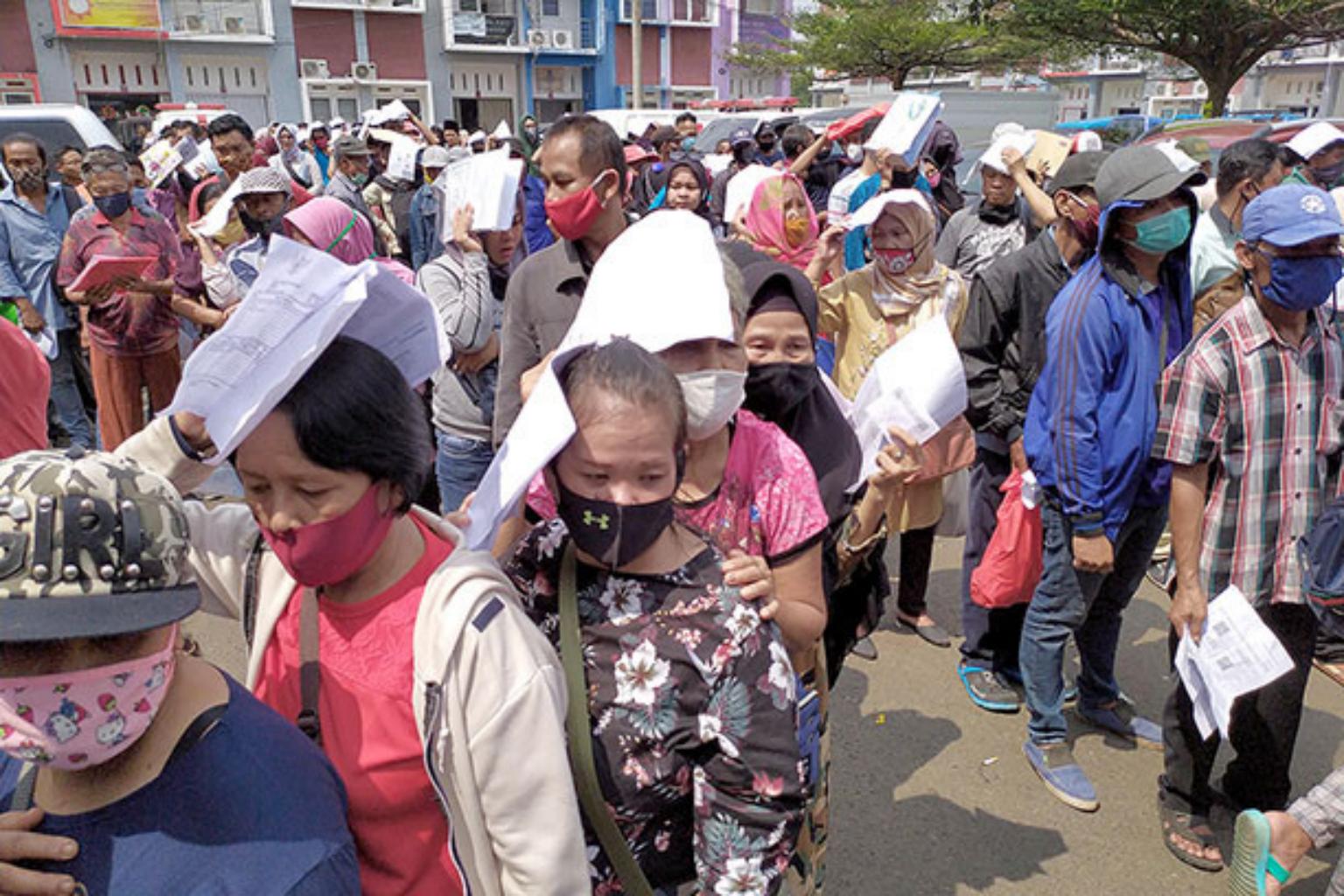Editorial Notes
Covid-19 task force reshuffle signals further shift in priorities: Jakarta Post
In its editorial, the paper says that concerns have been raised about appointing economic ministers to lead Indonesia's Covid-19 battle.
Sign up now: Get insights on Asia's fast-moving developments

Residents wait for their turn to receive social assistance money at the Bogor regency administration office complex in West Java on July 20, 2020.
PHOTO: THE JAKARTA POST/ASIA NEWS NETWORK
JAKARTA (THE JAKARTA POST/ASIA NEWS NETWORK) - The shake-up of the government's Covid-19 task force was expected. The country has achieved little in its fight against the pandemic.
Infections and deaths have doubled after a month of gradually reopening the economy. There have been more than 88,000 officially reported cases and 4,200 deaths, according to Johns Hopkins University, meaning Indonesia has now surpassed China in both measures.
At the current pace, Indonesia may approach Germany's figures by next month, where the virus has infected 203,000 people and killed 9,000.
This should be alarming because Indonesia's testing rate and healthcare capacity are much lower than those of the two other countries.
President Joko "Jokowi" Widodo may feel satisfied that the country's economy grew by 2.97 per cent in the first quarter of this year, but it may not be long before the economy takes a further dive if the health crisis remains unabated.
The task force shake-up has put Coordinating Economic Minister Airlangga Hartarto as chair and State-owned Enterprises Minister Erick Thohir as executive chair.
The institution has also been renamed. It is now the National Economic Recovery and Covid-19 Response Team, signalling a further shift in priorities.
The new team combines two previously separate task forces: the national Covid-19 task force, which handled public health, and the economic recovery task force. Both will now report to Mr Thohir on a daily basis.
Concerns have been raised about appointing economic ministers to lead the country's Covid-19 battle.
The emphasis on economic recovery - which the Jokowi administration exercised in the first half of this year - has proven ineffective at slowing down the spread of the virus.
The government has been told that it may have put the country's citizens at greater risk with the reopening.
Inconsistencies have hampered the effectiveness of the nation's Covid-19 response.
For instance, the government was criticised for allowing business trips on public transportation within weeks of banning all travel.
The procurement of testing kits and other health equipment has also been slow because of inefficient budget disbursement and lagging imports.
At a time when we need fast and effective decision-making badly, the government has opted to extend bureaucratic red tape, as indicated by the presence of the chair and executive chair of the new team.
Health protocols should be better implemented in all industries and economic activities, even if it causes extra costs and delayed profits.
It will take the economy more time to rebound as a result of the adjustments, but more lives will be saved.
The government should ensure that Covid-19 aid directly benefits people, rather than a few small groups and companies. Social protection is needed to keep people healthy and solvent.
If the President insists on keeping his aides regardless of their sluggish performance, the consequences will be damning for the public, as more people will get sick and more lives will be lost.
To justify the reopening, the government has said there should be no dichotomy between public health and the economy.
But as one economist puts it, we can only strike a balance between the two by getting the pandemic under control. At that, we continue to fail.
The Jakarta Post is a member of The Straits Times media partner Asia News Network, an alliance of 24 news media organisations.


